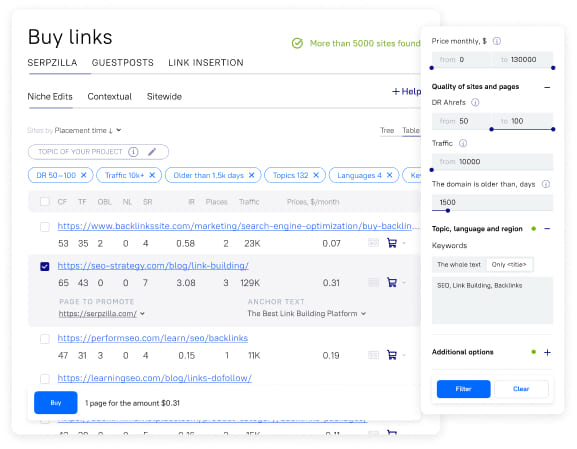In this guide, we reveal how many keywords you need to use on a page for optimal SEO. From the distribution of keywords to the choice of quality over quantity, our article offers practical advice and strategies to improve the visibility of your site and attract targeted traffic. Get answers to the most important SEO questions and start applying effective methods today.
Understanding Your Target Audience: The Foundation of SEO
Understanding the audience is at the heart of successful SEO. Analyzing the needs and behavior of your audience determines the choice of keywords, creating valuable and relevant content that meets their queries and increases the value of your site.
For example, if you are promoting a local bakery, research may show that potential customers are searching not just for “bakery” but for “vegan bakery in [your city].” Such findings guide you to more precise and effective keywords, such as “vegan desserts,” ensuring the attraction of your target audience.
For a deep understanding of the audience, use analytical tools and methods such as surveys, customer feedback, and social media analysis. These data not only help choose the right keywords but also reveal which content will be most in demand among your audience.
Quality Vs Quantity
We explore why, in the world of SEO, the quality and relevance of keywords surpass their quantity. Precisely selected keywords can improve your site’s positions in search results.
Practical example: Imagine you are working on SEO for a healthy eating blog. Choosing the keyword “healthy breakfasts” and creating deep, informative content that thoroughly describes various recipes, the benefits of each dish, and preparation tips will be much more effective than using dozens of less specific queries like “breakfast,” “healthy food” without providing specific value.
Improving the Quality of Keywords
Research visitor intentions understand exactly what your potential customers are looking for and what tasks they aim to solve.
Focus on long-tail keywords such queries are often less competitive and more specific, allowing you to attract more targeted traffic.
Competitor analysis study what keywords your competitors use and how they integrate them into their content to find potential weaknesses and advantages for your strategy.
Ultimately, striving for keyword quality should go hand in hand with creating valuable and relevant content. This approach not only improves the visibility of your site in search results but also provides a positive experience for users, which is the ultimate goal of any SEO strategy.
Optimal Keyword Distribution
Proper distribution of keywords across the page contributes to SEO improvement. It’s important to use keywords in headings, meta-tags, and alternative text for images.
Practical example: Suppose you are creating a page about the best methods of caring for indoor plants. Using the phrase “care for indoor plants” in the title, subtitles, introduction, and alt-texts of images demonstrating different care types will improve the SEO indicators of the page. However, it’s important to maintain a balance so that the text remains attractive and understandable to readers, avoiding oversaturation with the same expression.
Boost your SEO results! Link building has become fast and easy with Serpzilla. Buy quality backlinks on authority websites with high DR.

Tools for Working with Keywords
An overview of the most important tools for selecting and analyzing keywords, such as Google Keyword Planner, SEMrush, Ahrefs, Ubersuggest, and Moz Keyword Explorer, which will help you find the most suitable keywords for your site.
- Google Keyword Planner: A free tool from Google that is ideal for initial keyword research. It provides data on search volume and competition, helping to identify effective keywords for your campaign.
- SEMrush: A powerful paid tool that offers extensive data on keywords, including their difficulty, search volume, and ranking potential. SEMrush also allows you to analyze your competitors’ keyword strategies, which can provide valuable insights for your own strategy.
- Ahrefs: Another paid tool that is an excellent choice for keyword research and competitive analysis. Ahrefs offers detailed information on why certain pages rank for given keywords and how you can use this data to improve your content.
- Ubersuggest: A free tool from Neil Patel that offers detailed analytics on keywords, including ideas for long-tail keywords and competition data. This tool is suitable for generating new ideas and expanding your list of keywords.
- Moz Keyword Explorer: A paid tool that provides comprehensive information about keywords, including search volume, difficulty, and organic CTR. Moz also offers unique metrics, such as keyword priority, which help determine which keywords to focus on first.
Conclusion: Strategies for Successful SEO
In conclusion, the optimal number of keywords on a page for SEO is not determined by a rigid number but depends on the quality and relevance of the content. The main focus should be on creating value for the reader, naturally integrating keywords into the content, headings, and meta-tags. Remember the balance between quality and quantity, as well as the constant adaptation to changing search engine algorithms.





